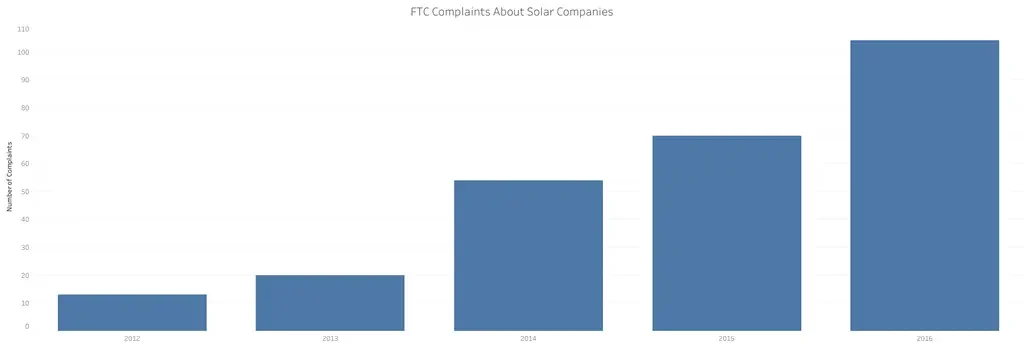More and more consumers are ready to switch to solar to save money, help the environment, get green energy, and more. The classic story does look like that, but no one considers that the solar business is rife with a solar panel scam. As a result, people pay huge electricity bills or buy a battery that doesn’t work, unaware of situations when a solar panel can’t help them.
It’s time to reveal the truth about solar panels.
Considering Going Solar? Do Your Research First
Should I go solar, you may ask yourself. But have you correctly assessed the installation’s disadvantages and ensured they would save you money? We offer seven reasons why their acquisition may not bring the desired result.
7 Reasons You Shouldn’t Buy Solar Panels
#1 Your roof is unsuitable for solar panels.
The most suitable place to place solar panels is the roof. Because it receives the maximum possible amount of sunlight, consumers receive sustainable solar energy. Unfortunately, not all roofs are suitable for these purposes.
The main reasons for not installing the panel on it include:
- Lack of roof. Unfortunately, you can’t install solar panels in an apartment building, rental housing, or other building where you are not the owner.
- Old roof. You can install solar panels on almost any type of roof if the latter is not damaged or has fragile areas. Saving costs and solar panel complaints may be due to reduced efficiency.
- Required roof replacement. If you plan to install a new roof soon, it is best to do this before installing the panels. Otherwise, you will have to dismantle the system completely.
- Insufficient roof size. It will take about 16-20 solar panels to provide sustainable solar energy at home, and these panels will take approximately 280-350 square feet. If a small roof does not allow you to install enough panels, then the idea of solar panels should be abandoned.
- Large shade area. The presence of many trees on the site or nearby houses that form a shadow on the roof/site are unfavorable conditions for the panels, and they will lead to problems with solar panels and their inefficiency.
- Significant roof pitch. Even the shape of the roof is important. For example, if there is a strong slope, much less energy will be generated, which will lead to solar panel complaints and loss of money on your part.
All this can lead to a quick failure of the roof or battery and other solar panel problems.
#2 There is no other place to install solar panels.
Besides your roof, you can install your solar panels on:
- Backyard. A ground mount can be done if the property is larger than one acre and has enough open space to receive sunlight. Do not be afraid of solar panel pollution, they are essentially non-existent, so they will not affect the well-being of households constantly in contact with the installation.
- Other buildings. If you have a large gazebo or a different structure on the site, ensure it is solid, exposed to sunlight, and has enough space.
Both options minimize the downside risk of damage to an unprepared roof.
#3 You intend to relocate or sell your house.
Moving and selling your home is a good reason not to buy batteries. Dismantling, moving to a new address, and re-installation can harm solar panels, costing you a lot of money. Likewise, the panels may be unsuitable for a given location.
But if you are ready to sell the house and the panels, there is good news in the solar panel industry for you. According to studies, the cost of housing with solar panels installed on the property increases by 4.1%.
#4 Your power bills are modest
Nearly 100% of consumers who want to switch to solar want to save money on electricity bills.
There are several conditions under which future solar panels on your home will not bring significant savings:
- Your energy costs are $50 or less.
- You have a small house and house territory.
- All electrical appliances and light bulbs in your home are energy efficient.
To assess whether you need a solar panel, use the free calculator and check the respective solar system review.
#5 You are not qualified for incentives or rebates
Today, many states are trying to encourage committing to the solar panels industry via:
- Tax credits to save almost a third of the cost of the solar system.
- Net metering to sell all surplus energy to utilities at retail value.
- Exemption from property and sales tax.
- Up to $5,000 tax credit like in New York.
But everything is much sadder if you cannot get all these benefits. Therefore, be sure to read the solar power reviews in your area before taking action.
#6 Your quote looks to be too good to be true.
Due to the rapid growth in the popularity of solar energy, many have decided to build a solar panel business. But only some companies are worth your attention.
Solar panel scam is becoming more common, with one-day companies offering panels that don’t provide real value. Many solar panel complaints come from new and allegedly reliable companies, so it’s crucial to be careful when choosing a contractor. Luckily, opening the Internet solar energy reviews is sometimes enough to discover the truth.
Be vigilant, and before engaging in dialogue, read solar panels reviews and about the company itself, even if it is famous and inspires confidence at first sight.
#7 The economics don’t work out
When switching to solar energy, many consider future savings while ignoring the upfront payment. To answer “is getting solar panels worth it?”, study the economic side of it.
The average cost of the panels is $15,000, and it is only sometimes possible to establish a system of optimal dimensions that will provide the desired savings. Likewise, problems with the roof may occur, especially if the roof doesn’t meet the standards required for installing panels. Last but not least, if you already have a low cost for electricity, don’t buy solar panels!
Even one of the mentioned factors significantly increases the cost of solaк sustainable energy, let alone if several factors align. Undoubtedly, solar panels are good for the environment and can bring significant savings, but you still need thorough research before taking action.
Solar panels on your roof: are they beneficial?
Theoretically, solar panels can save you tons of money, but it’s not always the case.
The truth about solar panels is that all the benefit is based on six factors only:
- Around 20% savings on electricity bills.
- Protection against the increase in fuel cost for 20-25 years, as it has increased by 5% over the past ten years.
- An increase in the house’s value.
- Reduction in the level of CO2 (remember, solar panels are good for the environment).
- Incentives and tax credits.
- No need for frequent panel maintenance.
Some or all of the mentioned may not be the case with you, so thorough research must be your starting point.
Solar Power: The Next Big Thing? Be Wary of Scammers
The number of solar panel complaints increased dramatically between 2012 and 2016 to reflect the growth in demand.

Source: public.tableau.com
Since 2009, the cost of solar panels began to fall, and benefits began to grow. Unfortunately, the growth in demand for the product often leads to the appearance of scammers, the main solar panel problem today.
To protect yourself from unscrupulous companies, do the following:
- Evaluate whether you need solar energy sustainability at all. Your house may not be suitable, or you may be unable to save money by installing solar panels. Consult the websites of the Federal Trade Commission, the Consumer Financial Protection Bureau, or the Department of Energy.
- Research several solar panel companies in your and neighboring states. Reviewing several competitors will help you get the hang of the industry and avoid the most popular problems in solar energy. Solar panels reviews will likely help you.
- Read custom solar energy reviews on forums, websites, and social networks. Some authors publish their solar panels problems directly on blogs. The more information you can collect, the more protected you are.
- Read the contract before signing. Most of the pitfalls and problems of solar panels lurk in the agreement, potentially causing a solar panels scam. Remember that the contract is signed for 20-25 years, and it may be difficult to prove something or get rid of an unscrupulous contractor after you’ve signed it.
When representatives of solar businesses knock on your door, be alert. They are all trained to speak beautifully and promise everything will be “cheap, free, and efficient.” Never leave an electronic seal on a representative’s phone or mobile device. There were cases when a carelessly left seal was transferred to the installation contract, and the person bought the system.
If you intend to make a purchase, the procedure will have many stages, from the preparation of documents to the signing of a contract. Also, to avoid solar panel scams, it will be useful to communicate with the local community of solar energy supporters and to read reviews on solar panels. They will tell you about all the perks of buying a battery in your area, share their experience and suggest trusted companies.
The Negative Aspects of Solar Power.
Are solar panels dangerous? They’re more environmentally friendly than fuel-fired power plants. Solar energy problems are associated only with a small carbon debt, which is already in operation. But even his system, with active work, fully repays in 1-3 years.
The assumption that solar panels are dangerous stems from the fact that our planet is already quite clogged with waste. That said, solar panels waste has little to do with this, as solar panels are environmentally friendly if disposed of with discretion.
Solar panels became popular not so long ago, meaning most of them still haven’t served long enough to judge about downsides of solar panels. However, the US and some countries already have an action plan to prevent possible pollution from solar panel waste.


